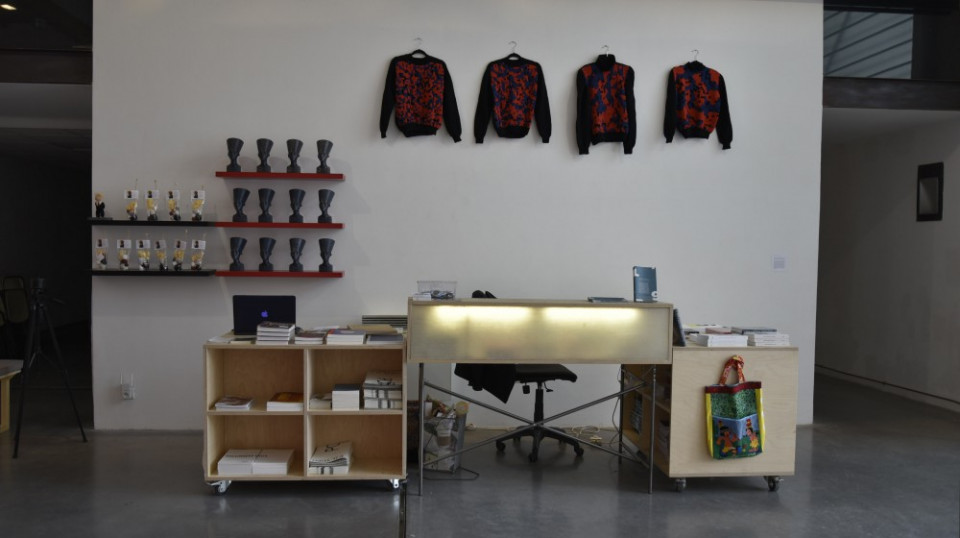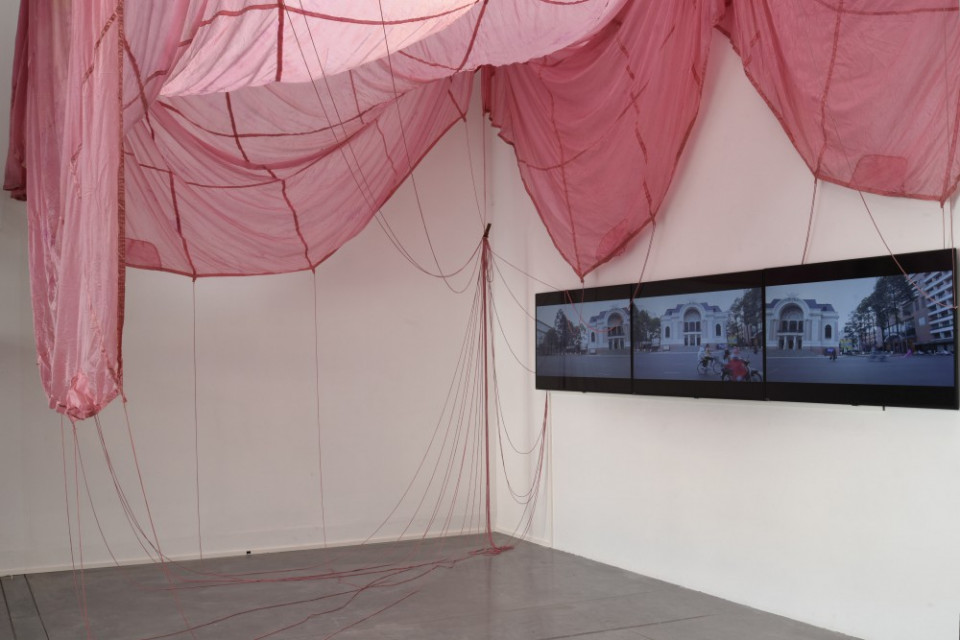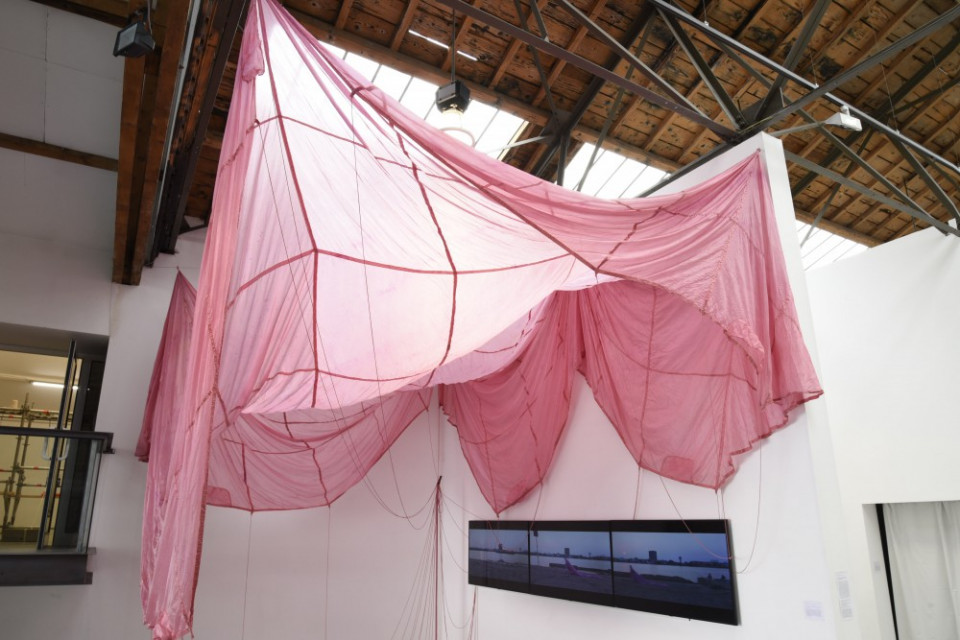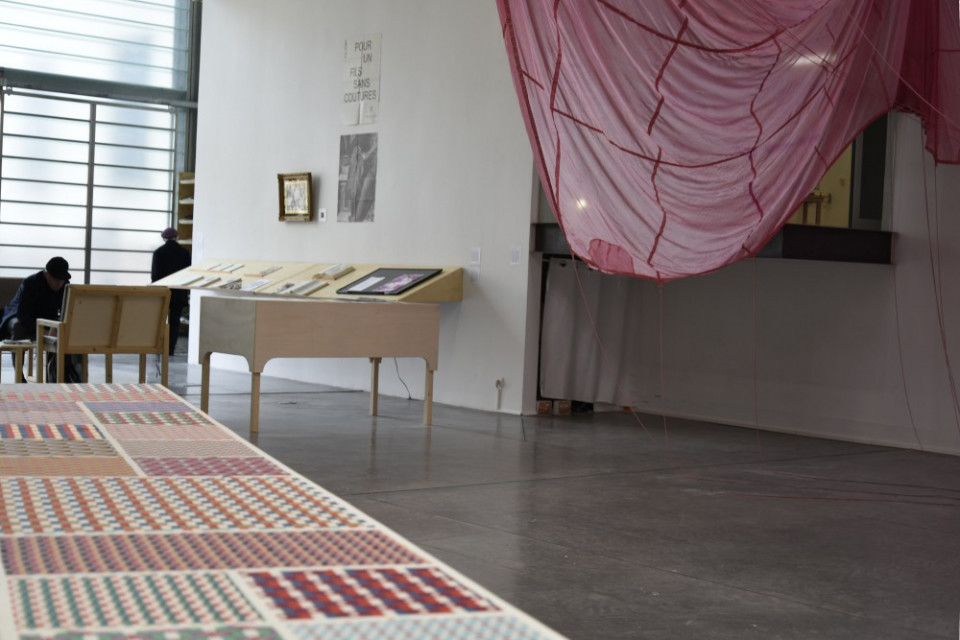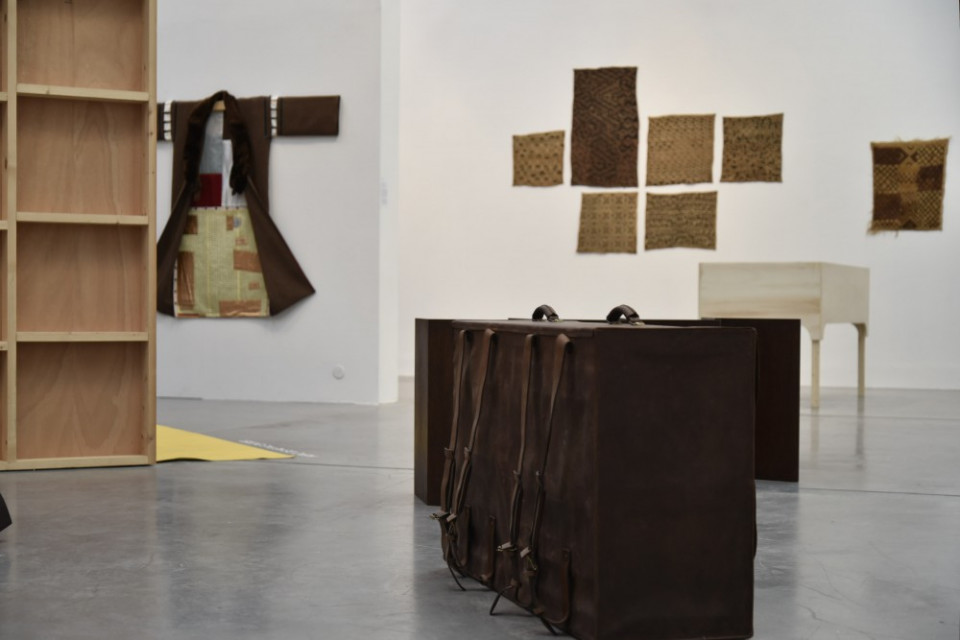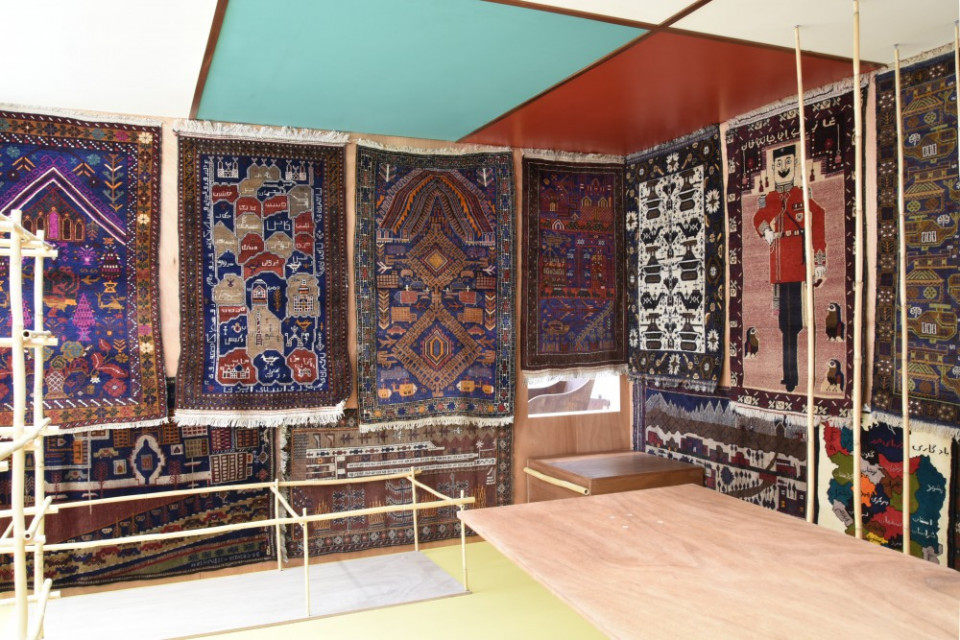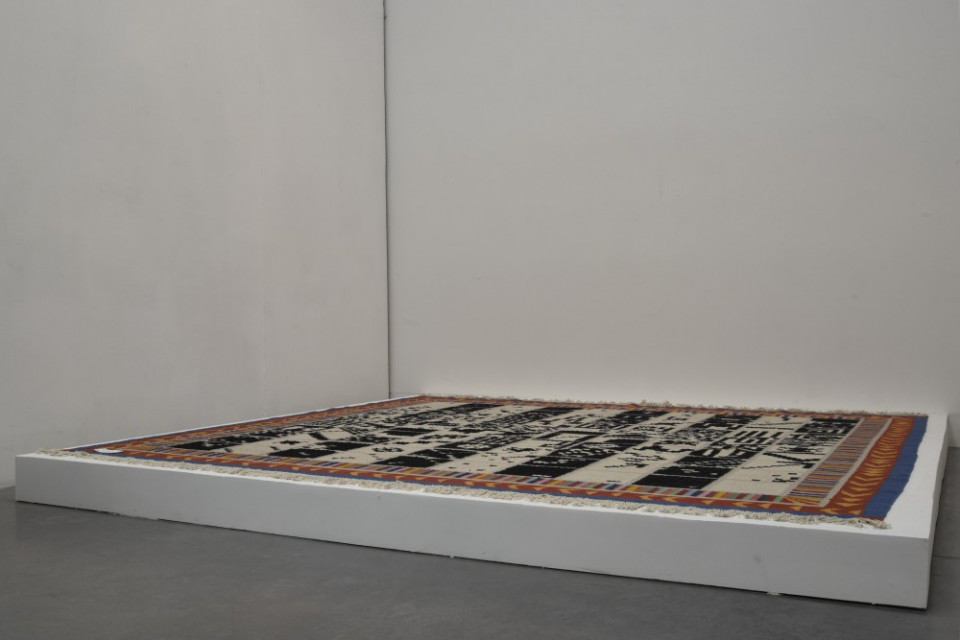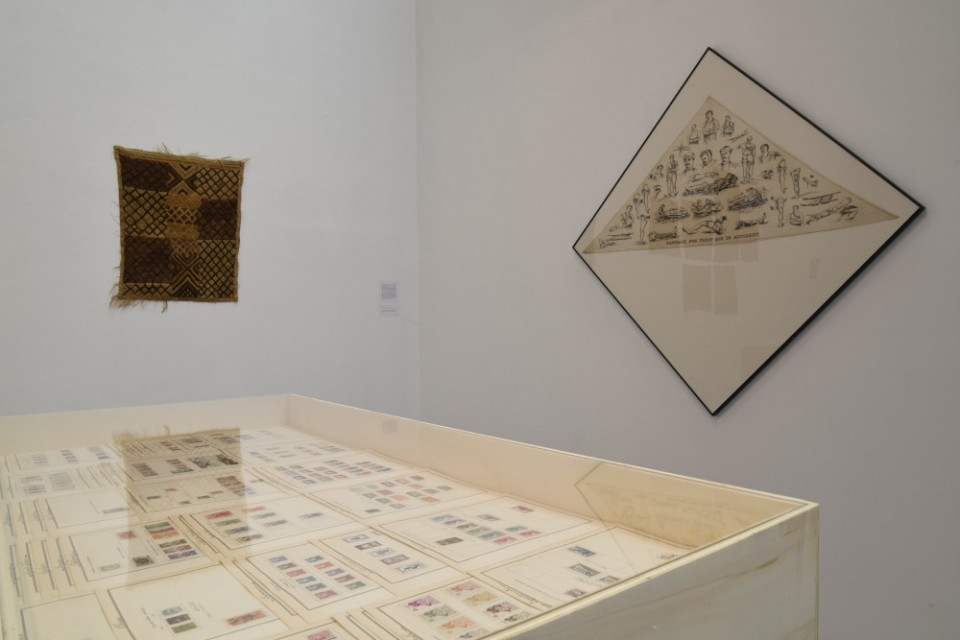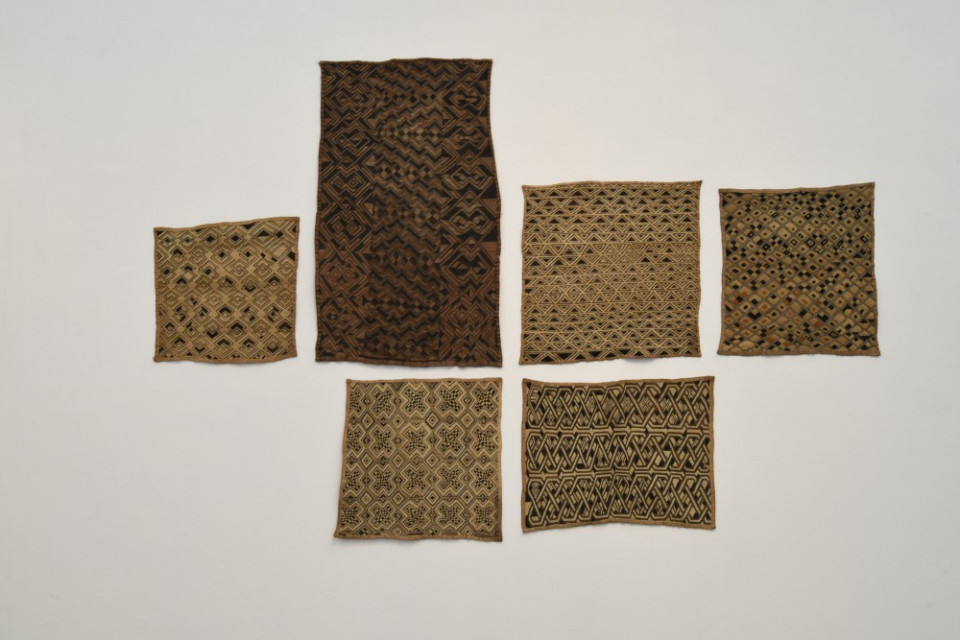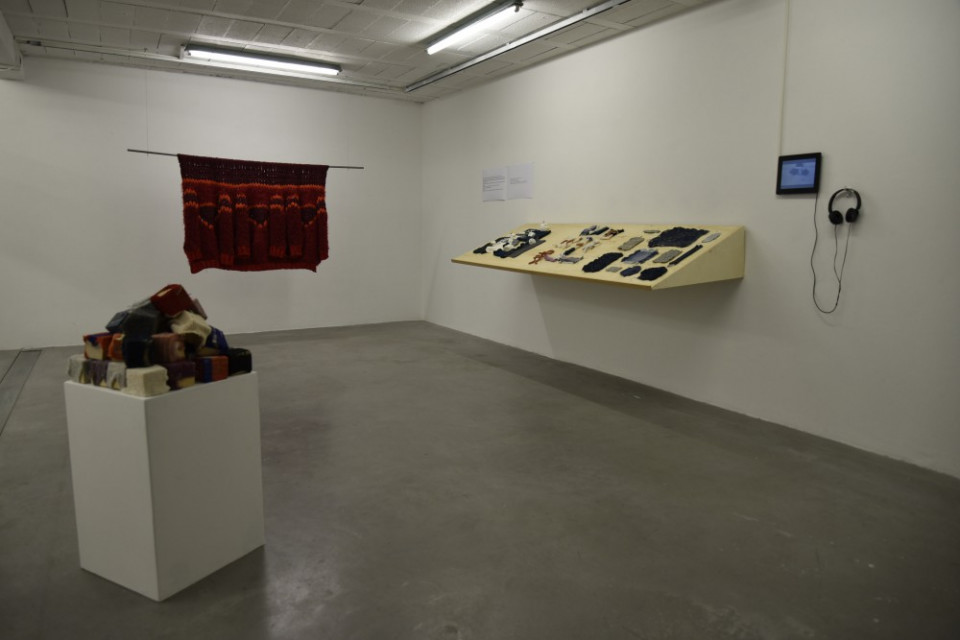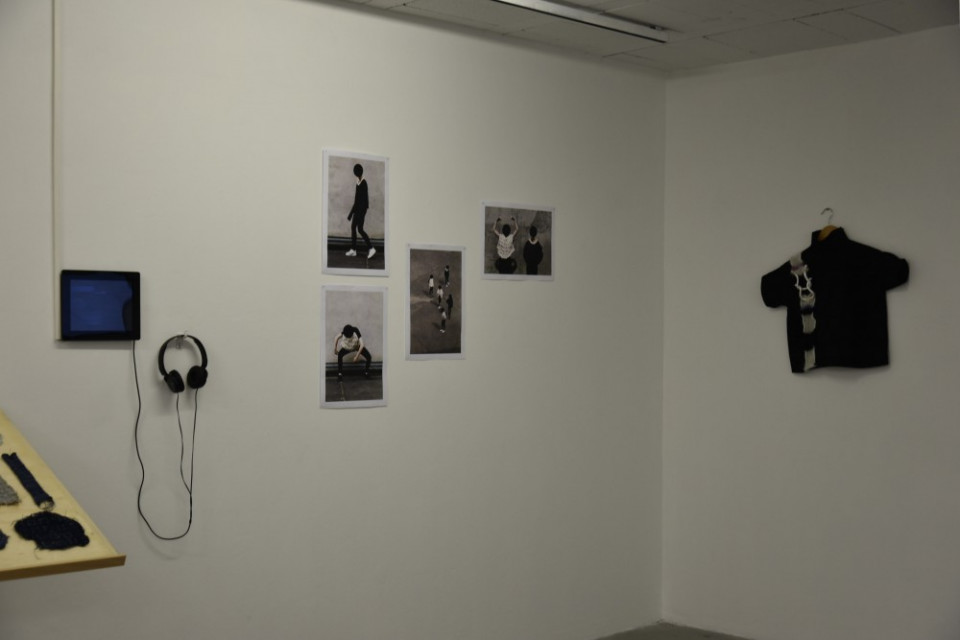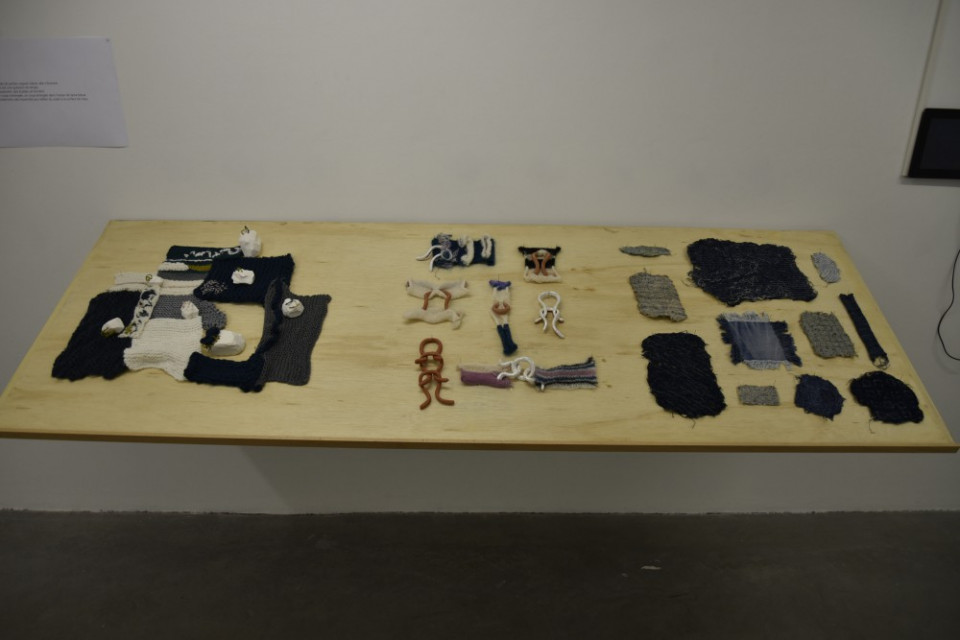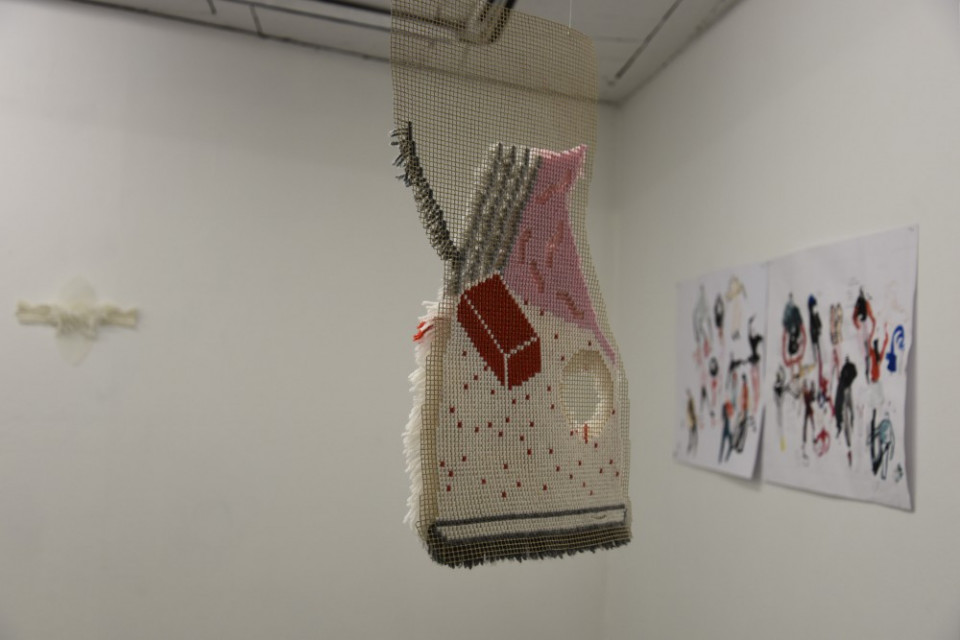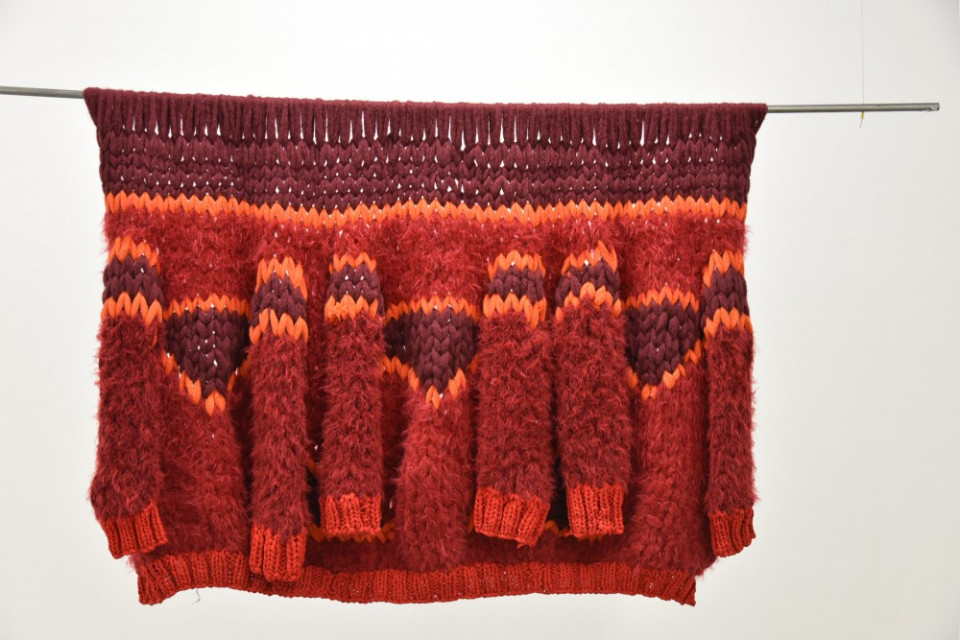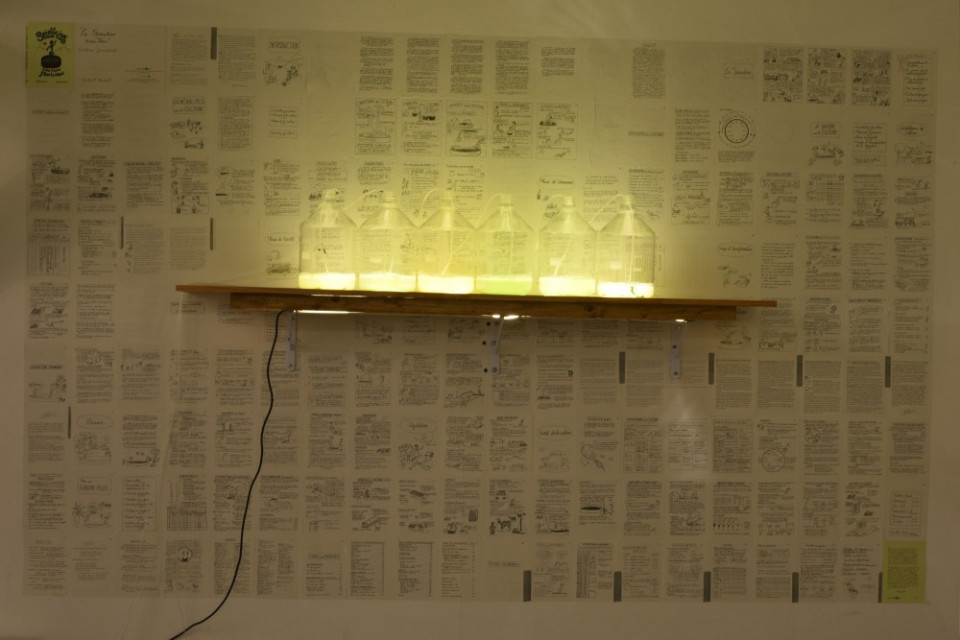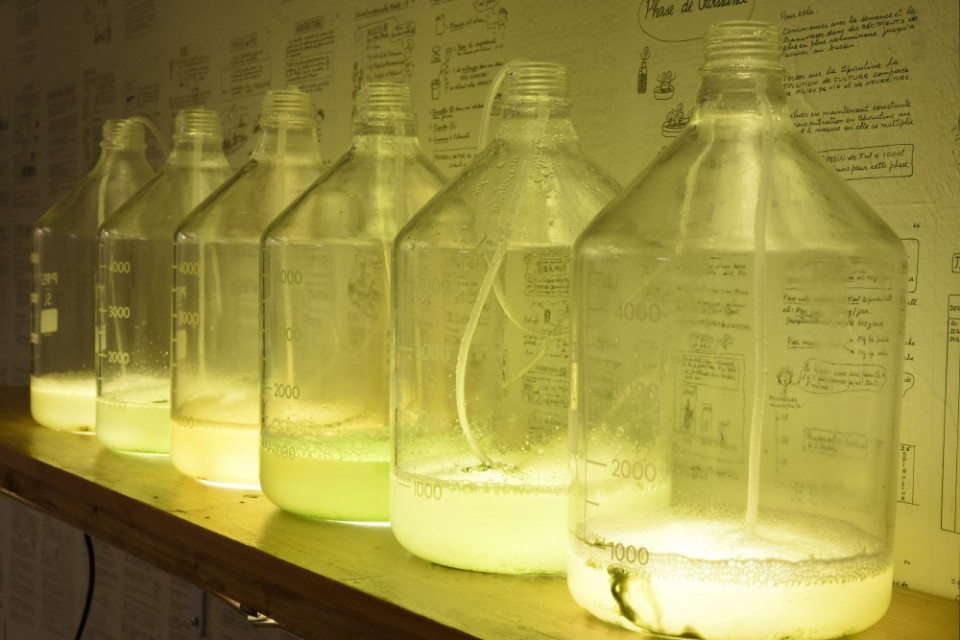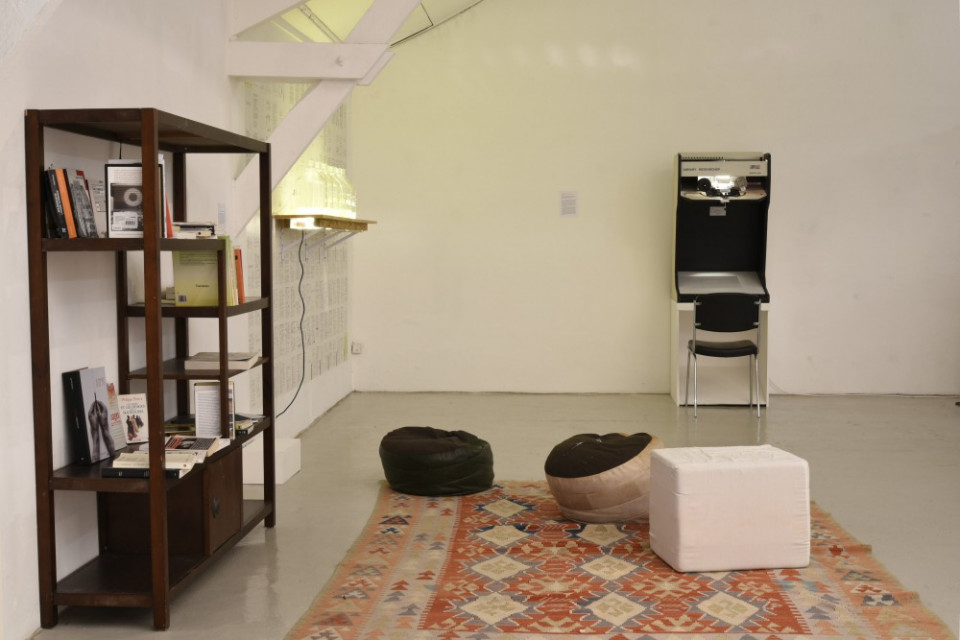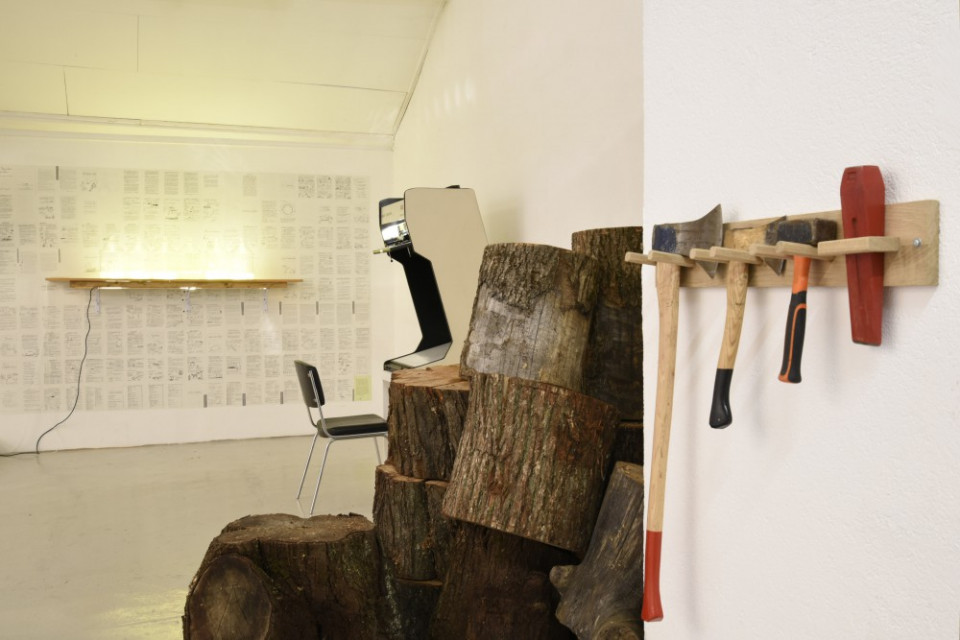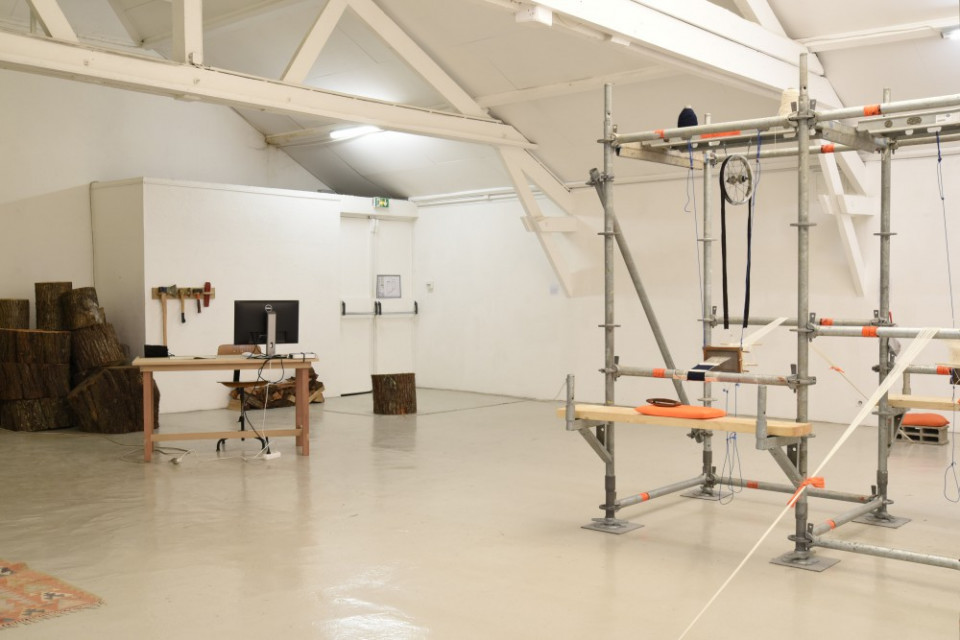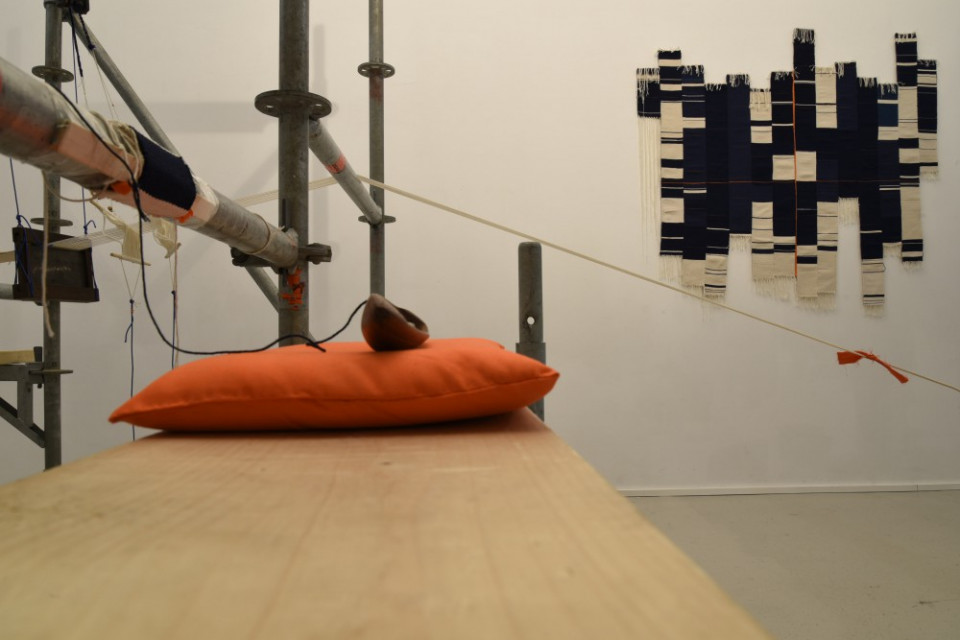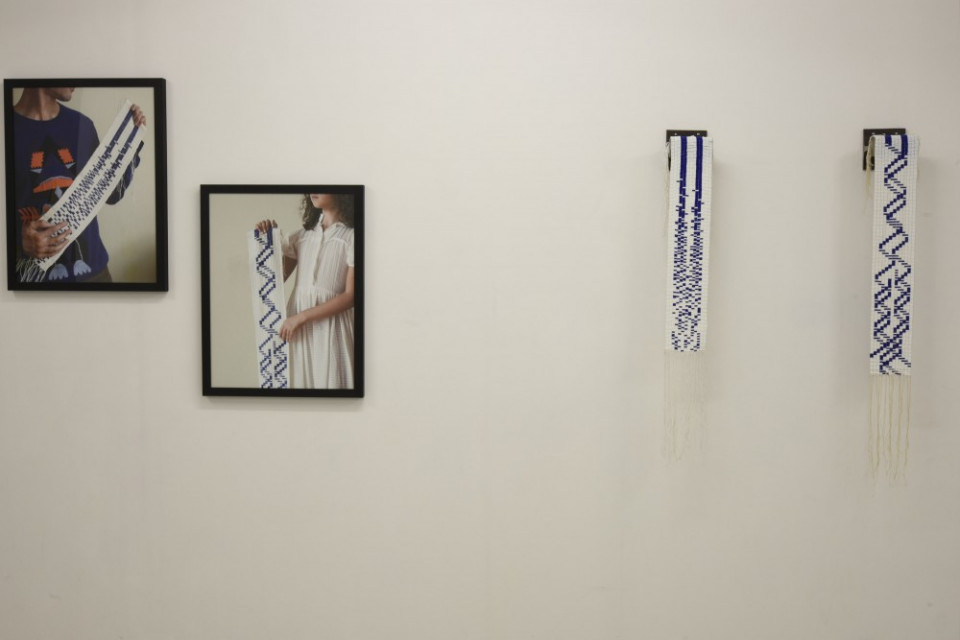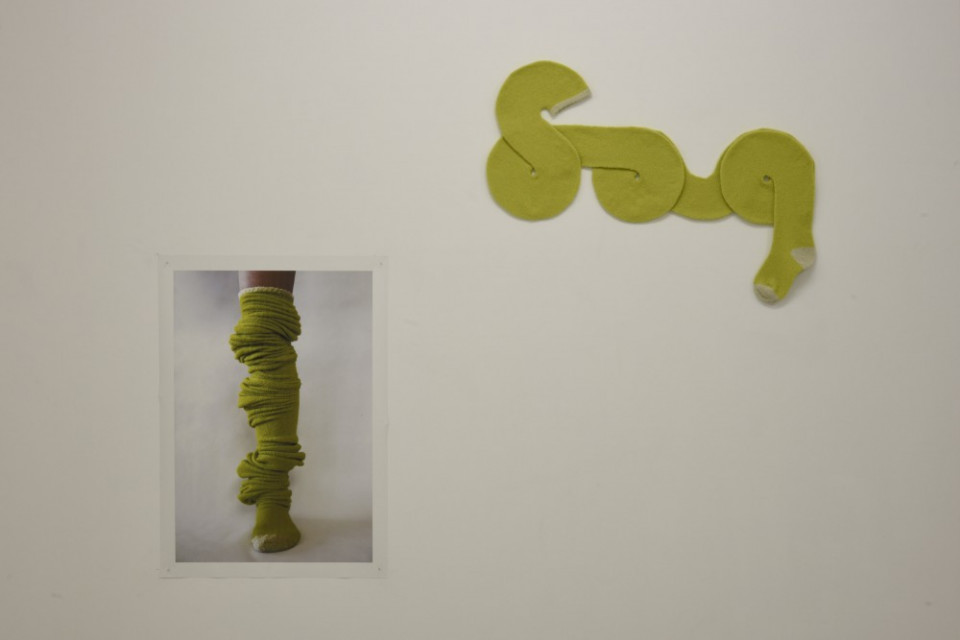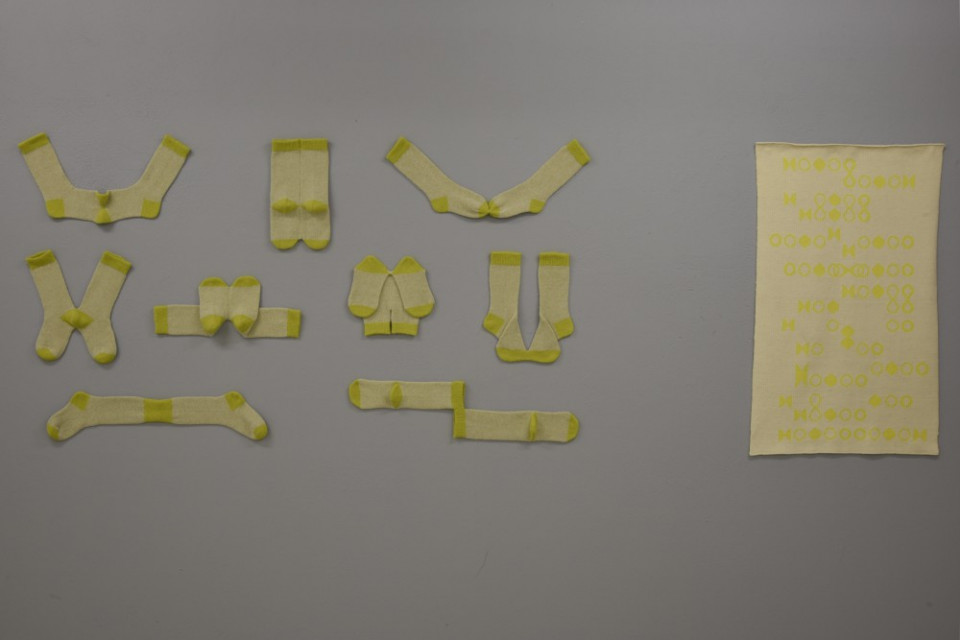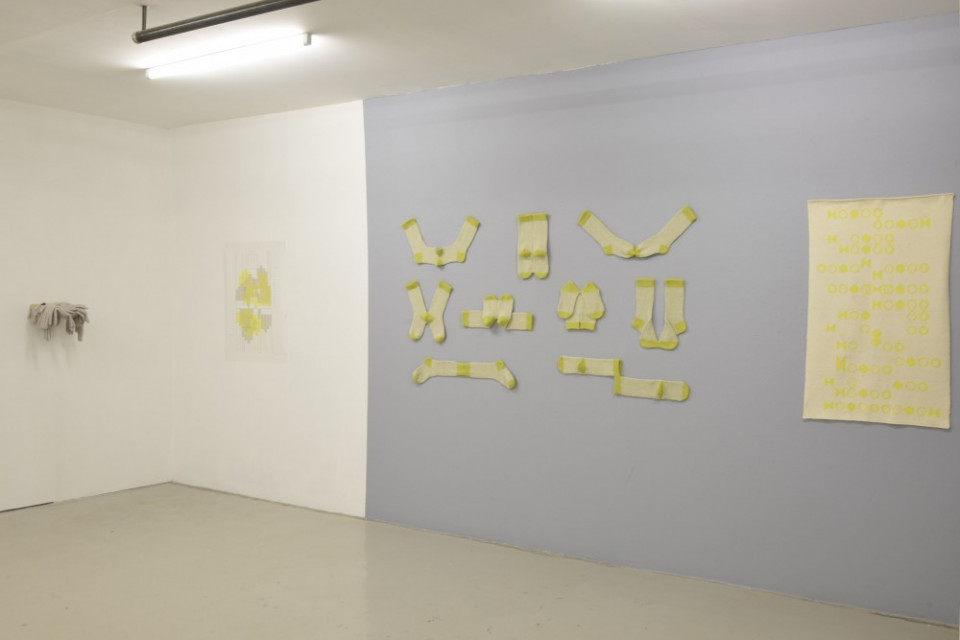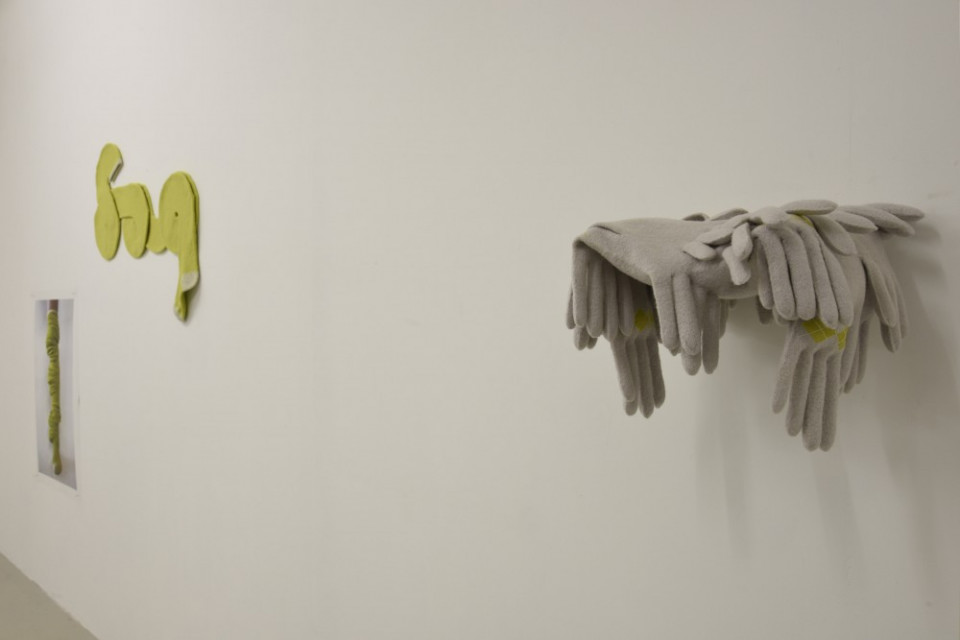Exposition collective
Indexmakers
Exposition
Nora Al-Badri & Jan Nikolai Nelles, Michel Aubry, Rossella Biscotti, Alighiero Boetti & Annemarie Sauzeau, Milena Bonilla & Carlos Marx, Stewart Brand, Andrea Büttner, Renaud Clément & Bassel Khartabil, Gaëtan Gatian de Clérambault, Catherine Creuze, Délit Maille, HEAR Mulhouse (design textile), inventaire.io, Ben Kinmont, KVM – Ju Hyun Lee et Ludovic Burel, La mYne (tiers-lieu), Pierre Leguillon & Jean Dubuffet, David Liver, Nicolas Maigret & Maria Roszkowska, Jane Makhubele, Marie & IL TOPO, Olive Martin & Patrick Bernier, Isabelle Moulin, Julien Prévieux, Lorraine Réda, Edward Saïd & Joe Scanlan, Laura Séguy, Tehnica Schweiz & Katarina Šević, Seth Siegelaub, Dagmara Stephan, Coline Sunier & Charles Mazé, Sophie Taeuber-Arp, Ambroise Tièche, Tran Minh Duc, …
Artiste-éditeur ou artiste tisserand, femme indienne ou africaine, cyberactiviste, penseur du post-colonialisme, bidouilleur informatique, etc., l’exposition accueille celles et ceux qui contribuent aujourd’hui à créer du commun par la mise en visibilité de savoirs mineurs. La traditionnelle dichotomie entre « celui qui pense » et « celui qui fait » est ainsi remise en jeu, afin de dépasser une appréhension strictement esthétique ou utilitaire, et envisager de nouvelles formes de diffusion de l’information. Les rapports de pouvoir, de prestige, d’identité s’en trouvent également perturbés.
Seth Siegelaub et Stewart Brand sont les deux figures historiques initiales de cette exposition. Entre 1968 et 1972, tous deux diffusent des livres de nature particulière. Par son travail bibliographique, Seth Siegelaub rend accessible tout au long de sa vie certains savoirs peu visibles et constitue deux centres de recherche. Il s’engage en faveur de l’art conceptuel naissant, du marxisme dialectisant les mass-médias et rassemble les éléments épars d’une histoire sociale du textile. Stewart Brand est quant à lui l’instigateur du Whole Earth Catalog qui réunit quantité d’ouvrages et d’articles Do It Yourself, et auquel doivent beaucoup la contre-culture américaine, mais aussi, paradoxalement, les patrons de la Silicon Valley. L’idéologie qui a permis l’émergence de tels empires privés est remise en question par les bidouilleurs informatique et militants du partage gratuit de l’information invités dans l’exposition.
Selon le philosophe Hartmut Böhme, une civilisation n’existe réellement qu’à partir du moment où, culturellement, elle maitrise les techniques servant à relier et à connecter. Les traditionnels arts textiles en font partie, de même que la toile internet et les initiatives open source, mais également l’univers des Makers – les tiers-lieux, fab-labs et autres hacker spaces qui fleurissent aujourd’hui. Indexmakers propose ainsi des rapprochements non conventionnels et inattendus, entre, par exemple, un artiste utilisant le tissage, des bibliographies, un bricoleur et les arts culinaires.
Et : des appliqués et velours du Kasaï (Mali), des broderies Cree et Anishinaabe (Canada), un carré de connaissance (France), un bandage de premiers secours (Angleterre), un grand Nceka (Afrique du sud) et une collection de timbres coloniaux (France).
Artist-publisher or artist-weaver, Native American or African woman, cyber-activist, thinker of post-colonialism, computer hacker, etc. indexmakers includes those who create common ground by empowering minor knowledges and skills in bringing them to the forefront. The traditional dichotomy between «the thinker» and «the maker» is thus questioned in order to overcome a strictly aesthetic or utilitarian apprehension and to consider new forms of information spreading. The relations of power, prestige and identity are also disrupted.
Seth Siegelaub and Stewart Brand are the two seminal figures in this exhibition. Between 1968 and 1972, both publish books of special nature. Seth Siegelaub’s bibliographical research makes some of the less visible knowledge accessible and sets up two research centres. As well as he supports the emerging conceptual art and Marxist criticism of the mass media, he also gathers the scattered elements of a social history of textiles. Stewart Brand is the instigator of the Whole Earth Catalog, that brings together many DIY books and articles to which not only the American counter-culture owes much, but also, paradoxically, the Silicon Valley moghuls. The ideology that has allowed the emergence of such private empires is being challenged by computer hackers and free information-sharing activists in the indexmakers exhibition.
According to the philosopher Hartmut Böhme, a civilization only exists, culturally speaking, when it masters the techniques used to connect. The traditional textile arts are part of this, as well as the web and open source initiatives, but also the world of the Makers—third places, fab-labs and other hacker spaces that flourish today. Indexmakers makes unconventional and unexpected connections between, for example, an artist using weaving, bibliographies, a do-it-yourselfer and culinary arts.
And: Kasaï (Mali) appliqués and velvet, a knowledge square (France), a first-aid bandage (England), a large Nceka (South Africa) and a collection of colonial stamps (France).
Infos utiles
Tenez-vous informés des évènements autour des expositions.
HORAIRES:
ma - sa : 14h-18h, di : 15h-18h, fermé les lundis et jours fériés (1 nov, 11 nov) - attention également fermé le 12 nov
GROUPES ET ENFANTS:
Consultez nos actions pédagogiques.
